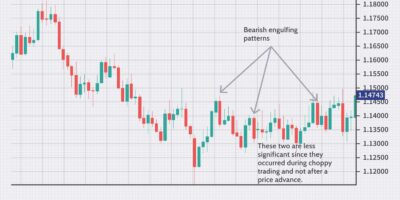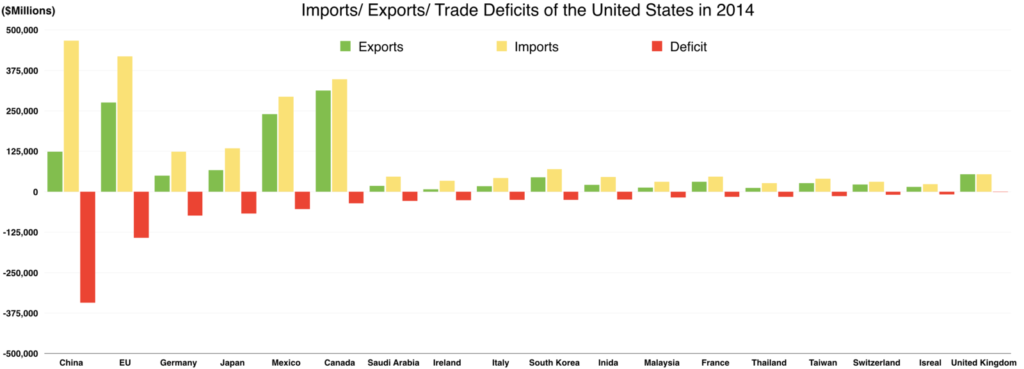Ted Bauman noticed something interesting when he was traveling overseas. In South Africa, he was using a cellular phone that was running on Android software. He was also enjoying a Valpre fizzy water, and this product was made by Coca-Cola. In addition to that, he had plans to purchase new furniture for his beach house that he was going to transport with his rented Ford vehicle.
Several products in South Africa are made by American companies. The same could be said for products in Germany and Switzerland, two countries in which Mr. Bauman recently spent some time.
The products he purchased in South Africa were made in South Africa, and those purchased in Germany and Switzerland were also made in those countries. It must be noted that a portion of the sales of these products is destined to land in the bank accounts of those who invented them and own the copyrights.
Ted Bauman was raised in Maryland, but he moved to South Africa to attend the University of Cape Town where he earned two postgraduate degrees in Economics and History. He spent 25 years in South Africa where he accepted several executive roles with nonprofit organizations. In 2013, he became a part-time editor with Banyan Hill Publishing where he used his experience to write several publications. As a result, he gained a loyal following of more than 100,000 subscribers.
The money that copyright owners receive is not part of the value of American exports. “Exports” is a category given special designation by the Trump administration, and it only includes products and services that are provided by companies that have a presence in the United States.
Revenue from the sale of U.S.-branded products and services that are sold by holders of licenses and foreign subsidiaries is not considered to be in the export class.
Mr. Bauman believes that this revenue is highly important to the U.S. economy, and he wonders why the government doesn’t consider these goods to be exports. How would things be different if they were?
The Answer
The answer to this question will surprise you, and it demonstrates why President Trump’s trade war is dangerous to your investments.
The trade balance shows that the U.S. has an annual deficit with China in the amount of $330 billion while the deficit with the rest of the world is $550 billion.
Deutsche Bank AG published a study recently in which the sales of U.S. companies operating abroad were calculated. The officials added the $90 billion that U.S. firms located in China received, and they found that the deficit became a surplus.
Corporate foreign income was also added to sales in Mexico and Canada, and the same thing happened. The U.S. was found to be running a sales surplus. When this issue is examined on a global level, a similar picture can be seen.
These simple truths should not be a surprise to anyone, but those in the media rarely ever talk about it when they are speaking about trade. Because of this, many Americans believe that this country needs tariffs and other trade barriers like them.
Let’s look at the reason that Ted Bauman says this is necessary.
The first point is that the economy today doesn’t need anyone to manufacture products in one country and then ship them to another country in order to be sold. Nearly every nation can manufacture its own products, and some can even build larger items like cars. China is an example of this. If American companies manufacture their products overseas and sell them there, they save a lot of money on shipping costs.
A major source of American companies’ income is the licensing of brand names and patents. For example, foreign subsidiaries manufacture and sell iPhones overseas for Apple, but the revenue from this intellectual property returns to Apple’s bank accounts in the United States. Rather than manufacturing products, American companies are collecting fees for their intellectual property instead.
American companies receive revenue from both instances cited above like they would if the money had come from selling products overseas, but the money isn’t counted as if it were earned in this manner.
Ted Bauman announced that anyone who invested in American companies with foreign subsidiaries need to be concerned about President Trump’s trade war. He reminds investors that their sentiments must lie with the corporations and not with American workers. A trade war would mean that we will be able to expect the leading stocks on the S&P 500, Dow and Nasdaq to be particularly damaged.
Apple is a company that has a major presence in China. In the event of a trade war, the company’s earnings and profits would suffer. As the trade war grows even stronger, prices of commodities like soybeans would also be affected.
At the moment, price-to-earnings ratios are high for the U.S. If a trade war causes these earnings to fall, price-to-earnings ratios will fall as well. Stocks do not have far to go before they arrive in bear territory. In January, the S&P 500 reached a high of 2872, and it is only down 150 points right now. If a trade war begins, the bears will be motivated to bring the market down from that number in the U.S. and around the world.
Trump must soften his rhetoric on trade today to avoid any potential disasters in the market. China, Canada and other foreign markets are currently planning to retaliate against the U.S. Canadians have even begun to refuse to purchase products that were made in the U.S. Also because of the tariff issue, the U.S. is not exporting as much steel, soybeans and other products.
As the editor of The Bauman Letter, Plan B Club and Alpha Stock Alert, Ted Bauman is warning his followers that they will be the ones to suffer if a trade war takes over the economy. In The Bauman Letter, Mr. Bauman shows his readers how to protect money that they have invested in the markets and keep it safe.
Ted Bauman Online



